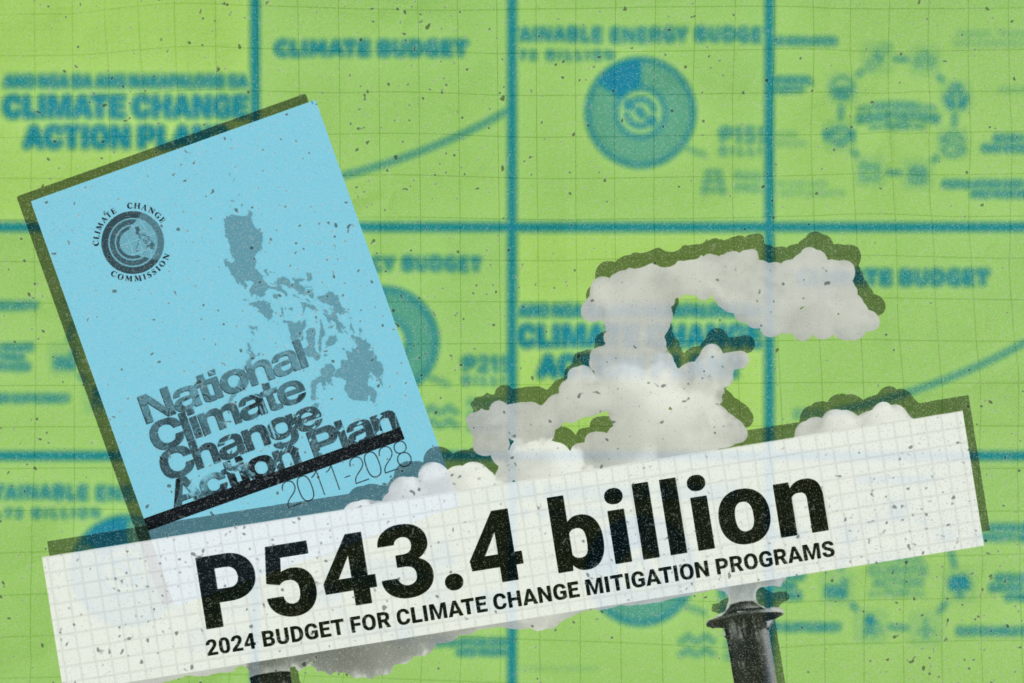GMA reveals inadequacy of government plan and budget for climate change

CHEERS to GMA Integrated News for a video report discussing the National Climate Change Action Plan (NCCAP), the official document that details the use of the budget allocated for dealing with the problems related to climate change.
In 2023, reports noted that the proposed budget for government climate change programs for 2024 grew by almost PHP100 billion. The approved budget now stands at PHP543 billion, or 9.4% of the total PHP5.76 trillion 2024 budget. Understanding the responsibility that comes with the large amount, the episode under GMA’s online series, “Need to Know,” asked the important questions: Is it enough? What will it be spent on and how?
Insufficient budget fails to prioritize
GMA first outlined the NCCAP into its seven priority areas: food security, human security, knowledge and capacity development, ecological and environmental stability, sustainable energy, water sufficiency, and climate-smart industries and services. Using graphs and visuals, GMA explained these in simple Filipino. They also consulted an expert who pointed out the weakness of the plan and how it can be improved.
The report featured Sonny Africa, economist and Ibon Foundation executive director, who argued that the government plan for use of the climate change budget fails to prioritize urgent concerns such as food security and environmental destruction.
Africa identified problematic areas. For example, the NCCAP will spend the PHP215 billion of the PHP296 billion budget for water sufficiency on flood control projects, rather than providing adequate, clean, and accessible water that so many people need. He also criticized the use of PHP155 million for railway projects out of the PHP180 billion sustainable energy budget. Africa countered the justification for railways projects to reduce greenhouse gas emissions from cars; saying that the railway projects will have a “negligible” effect on bringing down emissions. He said the amount would be better spent on facilitating the transition to clean and sustainable forms of energy since the energy sector at present is a greater source of emissions than transportation.
Africa concluded that the budget may not suffice to address the severity of the climate change problem as there is still so much to be done to meet established targets by 2030. He emphasized that the public should ensure they derive “maximum benefit” from all these activities.
Asking the right questions
The report drew out relevant answers to crucial questions without dwelling too much on complex issues that could turn off public attention and engagement. With the amount of time and money to produce the document, the public should examine its worth, and check the poor planning done by government.
Because of its location and landscape, the Philippines has been named among the countries in the world most affected by climate change. The report on government’s budget on climate change alerts Filipinos about the dangers they face, the shortage of potable water and other threats borne by more severe storms and extreme weather.
The news from Mindanao about flooding and landslides in Davao warns of similar dangers confronting vulnerable communities in other areas of the country. Meanwhile, the full El Niño will be felt nationwide. The media should apply even more depth and breadth to its coverage if only to force government to do everything that has to be done to mitigate against perils hounding our shared future.
Leave a Reply